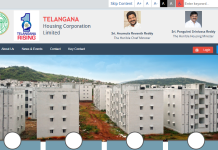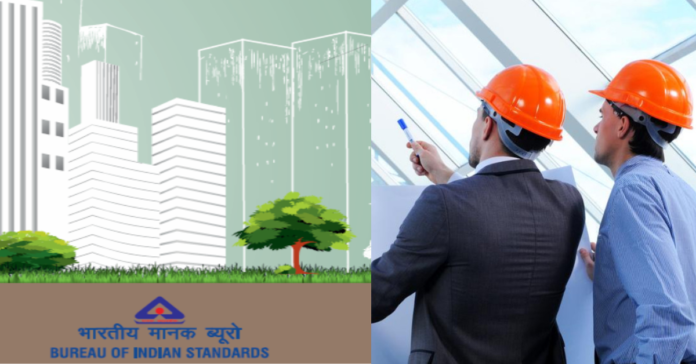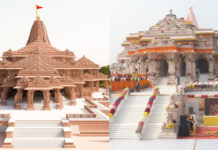The National Building Code of India (NBC) stands as a pivotal document governing the construction landscape across the country. Envisioned by the Bureau of Indian Standards (BIS), the NBC is a comprehensive set of guidelines that ensure the safety, structural integrity, and sustainability of buildings. This article delves into the significance, key provisions, and the evolving role of the NBC in shaping India’s construction industry.
The Genesis of NBC
India’s burgeoning urbanization necessitated a standardized framework for building construction. The NBC, first introduced in 1970, has undergone several revisions to align with technological advancements, changing demographics, and emerging challenges like climate change. It serves as a model code, adaptable by various stakeholders including government agencies, local bodies, and private builders
Structure of the National Building Code
The NBC is divided into various parts, each focusing on specific aspects of building construction and maintenance. The major sections include:
- Administrative Regulations: This part outlines the administrative framework for implementing the code, including the roles and responsibilities of various stakeholders.
- Development Control Rules and General Building Requirements: This section covers planning norms, building height regulations, and open space requirements.
- Fire and Life Safety: Detailed guidelines on fire prevention, fire protection systems, and evacuation plans are provided in this part.
- Building Materials: Standards for various construction materials, including their properties and testing methods, are specified here.
- Structural Design: This part covers the design principles for different types of structures, including load-bearing and framed structures.
- Construction Management, Practices, and Safety: Guidelines for construction project management, worker safety, and site practices are detailed in this section.
- Building Services: Provisions for electrical installations, water supply, drainage, and waste management are included here.
- Landscape Development, Signs, and Outdoor Display Structures: This section focuses on the planning and development of landscapes and signage.
Significance of the National Building Code
- Uniform Building Standards: The NBC provides a consistent framework for building regulations across India, eliminating discrepancies between different regions.
- Risk Reduction: By adhering to the NBC, the likelihood of building collapses, fires, and other disasters is significantly reduced.
- Quality Assurance: The code ensures that buildings meet minimum quality standards, enhancing durability and longevity.
- Economic Growth: A robust building code fosters investor confidence and facilitates sustainable urban development.
- Public Health and Welfare: The NBC contributes to the overall well-being of citizens by providing safe and healthy living environments.
- Technological Advancement: The code encourages the adoption of innovative building technologies and materials.
- Disaster Management: The NBC plays a crucial role in disaster preparedness and response by improving building resilience.
Objectives of the National Building Code of India in the Construction Sector
The National Building Code (NBC) of India is a comprehensive set of guidelines that governs the planning, design, construction, and maintenance of buildings. Its primary objectives are to ensure the safety, quality, and sustainability of the built environment. Below are the key objectives of the NBC in the construction sector:
1. Ensuring Structural Safety
Objective: To provide guidelines that ensure the structural integrity and stability of buildings.
- Standards for Design and Construction: The NBC includes detailed specifications for designing and constructing various types of structures to withstand natural and man-made forces, such as earthquakes, wind, and load-bearing requirements.
- Materials and Methods: Establish robust standards for materials and construction methods to ensure durability and strength.
2. Promoting Fire and Life Safety
Objective: To establish safety protocols that prevent fire hazards and protect building occupants.
- Fire Prevention Measures: Guidelines for fire-resistant materials, design, and construction practices that minimize fire risks.
- Evacuation and Safety Plans: Requirements for emergency exits, firefighting equipment, and safe evacuation procedures.
3. Enhancing Sustainability
Objective: To encourage environmentally sustainable building practices.
- Energy Efficiency: Recommendations for energy-efficient designs, including the use of renewable energy sources and insulation.
- Water Conservation: Guidelines for water-saving devices, rainwater harvesting, and efficient plumbing systems.
- Waste Management: Provisions for recycling, waste segregation, and sustainable waste disposal methods.
4. Standardizing Construction Practices
Objective: To ensure uniformity and consistency in construction practices across India.
- Quality Control: Implement standardized procedures to ensure high construction quality through comprehensive oversight.
- Construction Techniques: Detailed instructions for various construction techniques to maintain high standards and consistency.
5. Ensuring Accessibility
Objective: To make buildings accessible to all individuals, including those with disabilities.
- Inclusive Design: Guidelines for designing accessible entrances, ramps, elevators, and restrooms.
- Barrier-Free Environments: Standards to eliminate obstacles and create environments that are navigable by everyone.
6. Providing a Regulatory Framework
Objective: To create a regulatory framework that local authorities can enforce to ensure compliance with national standards.
- Local Adaptation: Flexibility for local governments to adapt and implement the NBC according to regional needs and conditions.
- Enforcement and Compliance: Establish robust mechanisms to ensure adherence to building standards through regular oversight and consequences for violations
7. Improving Building Services
Objective: To ensure the efficient and safe integration of building services.
- Electrical Systems: Standards for safe electrical installations and maintenance.
- Plumbing and Sanitation: Guidelines for efficient and hygienic plumbing systems.
- HVAC Systems: Specifications for heating, ventilation, and air conditioning to ensure indoor air quality and comfort.
8. Enhancing Resilience to Disasters
Objective: To build resilience against natural and man-made disasters.
- Disaster-Resistant Design: Provisions for designing buildings that can withstand earthquakes, floods, cyclones, and other disasters.
- Retrofitting Existing Structures: Guidelines for strengthening and upgrading existing buildings to improve their resilience.
9. Protecting Public Health and Welfare
Objective: To safeguard the health and well-being of the public through better building practices.
- Ventilation and Indoor Air Quality: Standards for adequate ventilation and the use of non-toxic materials to ensure good indoor air quality.
- Natural Lighting and Thermal Comfort: Guidelines for optimizing natural lighting and maintaining thermal comfort.
Objectives of the National Building Code (NBC) India in the Construction Sector
The National Building Code of India (NBC) is a comprehensive set of guidelines that regulate building construction activities across the country. Its primary objectives in the construction sector are:
Ensuring Safety
- Structural Integrity: Guaranteeing that buildings can withstand various loads and natural hazards.
- Fire Safety: Minimizing fire risks through provisions for prevention, detection, and suppression systems.
- Life Safety: Protecting occupants from injuries or fatalities during emergencies through provisions for evacuation, emergency exits, and accessibility.
Promoting Quality and Efficiency
- Uniform Standards: Establishing consistent building standards nationwide, leading to better quality and efficiency.
- Sustainable Construction: Encouraging eco-friendly practices, energy efficiency, and resource conservation.
- Accessibility: Ensuring buildings are accessible to people with disabilities.
- Health and Sanitation: Promoting hygienic and sanitary conditions within buildings.
Facilitating Development
- Risk Mitigation: Reducing the risk of building collapses, fires, and other disasters, which can hinder development.
- Economic Growth: Fostering investor confidence by ensuring safe and durable buildings.
- Urban Planning: Supporting orderly and sustainable urban development through land use regulations and zoning guidelines.
Advancing Technological Progress
- Innovation: Encouraging the adoption of new building materials, technologies, and construction methods.
- Research and Development: Stimulating research and development in the construction sector.
Benefits of the National Building Code (NBC) India in Construction
The National Building Code (NBC) of India serves as a foundational framework for ensuring safe, efficient, and sustainable construction practices. By adhering to the NBC, the construction industry reaps numerous benefits:
Enhanced Safety
- Structural Integrity: The NBC ensures buildings can withstand various loads, reducing the risk of collapses.
- Fire Safety: By mandating fire prevention and protection measures, the NBC safeguards lives and property.
- Disaster Resilience: Buildings designed according to the NBC are better equipped to withstand natural hazards.
Improved Quality
- Uniform Standards: The NBC provides consistent guidelines, leading to higher quality construction practices.
- Durability: Buildings adhering to the NBC are generally more durable and long-lasting.
- Accessibility: The code promotes inclusive design, making buildings accessible to people with disabilities.
Efficiency and Cost-Effectiveness
- Time Savings: Adherence to standardized procedures can streamline the construction process.
- Resource Optimization: Promote the efficient use of materials and energy through the NBC’s guidelines
- Reduced Liability: Compliance with the NBC can mitigate legal and financial risks.
Sustainable Development
- Environmental Protection: The NBC promotes eco-friendly construction practices, reducing the environmental impact.
- Energy Efficiency: Buildings designed according to the NBC often consume less energy.
- Resource Conservation: The code emphasizes the efficient use of natural resources.
Public Confidence
- Safety Assurance: Compliance with the NBC builds public trust in the safety and quality of buildings.
- Investment Attraction: A robust building code attracts investors and promotes real estate development.
- Community Well-being: Enhance overall quality of life by promoting the construction of safe and sustainable buildings..
National Building Code of India: Standards for Various Types of Establishments
National Building Code India: Guidelines for Different Establishments
The National Building Code (NBC) of India provides a comprehensive framework for building construction across the country. It offers specific guidelines tailored to different types of establishments. While the NBC covers a vast spectrum of requirements, let’s explore some key guidelines for common establishment types:
Residential Buildings
- Occupancy: Number of units, floor area, and height restrictions.
- Open Spaces: Requirements for courtyards, balconies, and setbacks.
- Fire Safety: Exit routes, fire extinguishers, and fire alarms.
- Accessibility: Provisions for people with disabilities, including ramps and elevators.
- Services: Water supply, sanitation, and electrical installations.
Commercial Buildings
- Occupancy: Zoning regulations and permissible activities.
- Fire Safety: Stringent fire protection measures due to higher occupancy loads.
- Accessibility: Provisions for customers and employees with disabilities.
- Services: Adequate electrical, plumbing, and HVAC systems.
- Structural Design: Considerations for heavy loads and dynamic forces.
Industrial Buildings
- Occupancy: Zoning restrictions based on industry type and hazardous materials.
- Fire Safety: Comprehensive fire protection systems and emergency response plans.
- Structural Design: Robust structures to withstand industrial loads and vibrations.
- Environmental Considerations: Pollution control and waste management.
- Safety Measures: Provisions for worker safety and emergency exits.
Institutional Buildings (Schools, Hospitals, etc.)
- Occupancy: Specific requirements for different types of institutions.
- Fire Safety: Prioritized safety measures due to high occupancy and vulnerable populations.
- Accessibility: Comprehensive provisions for people with disabilities.
- Hygiene and Sanitation: Strict sanitation standards and infection control measures (especially for hospitals).
- Emergency Preparedness: Evacuation plans and emergency equipment.
Assembly Buildings (Cinemas, Theaters, etc.)
- Occupancy: Limits on audience capacity and exit requirements.
- Fire Safety: Advanced fire detection and suppression systems.
- Emergency Exits: Adequate and well-marked escape routes.
- Accessibility: Provisions for people with disabilities, including accessible seating.
- Ventilation: Proper ventilation to prevent smoke buildup.
Frequently Asked Questions:
The NBC of India is a comprehensive set of guidelines that governs the design, construction, and maintenance of buildings to ensure safety, quality, and sustainabilit
The NBC aims to enhance structural safety, promote fire and life safety, support sustainability, standardize construction practices, ensure accessibility, and provide a regulatory framework for building complianc
Local municipal authorities and building regulatory agencies are responsible for implementing and enforcing the NBC rules, ensuring that construction practices comply with the code’s standards.
The NBC mandates regular inspections and imposes penalties for non-compliance to enforce adherence to its guidelines.



































